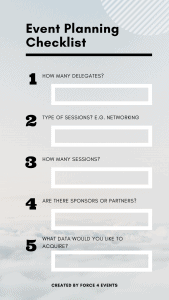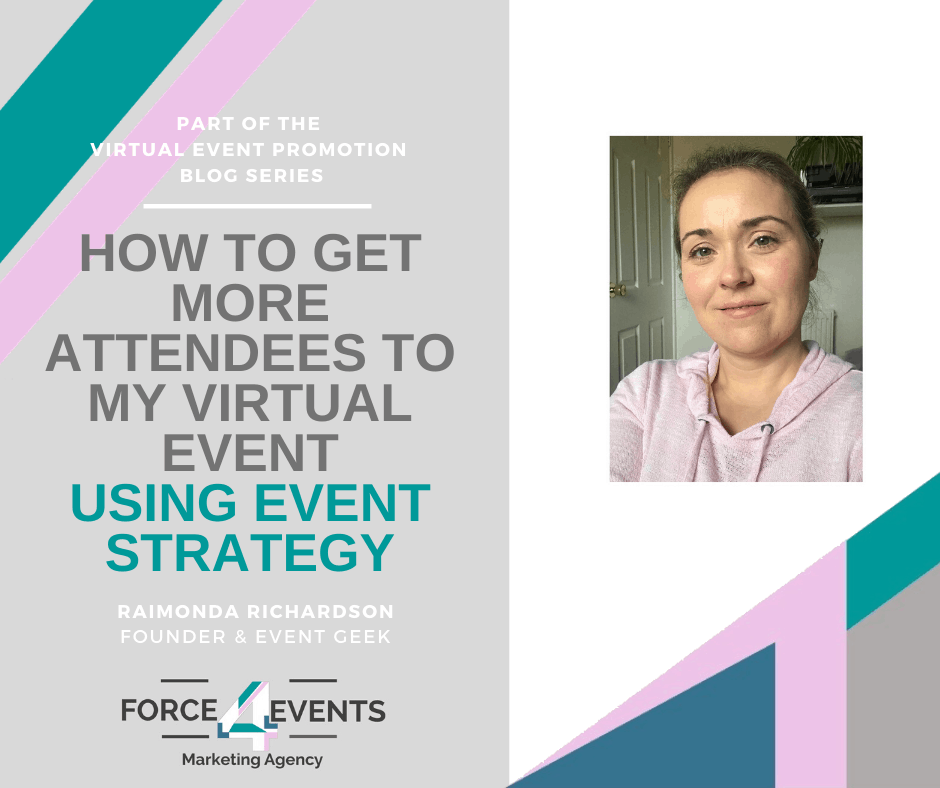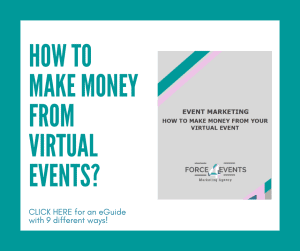How to get more attendees to your virtual events using Event Strategy
Event organising isn’t easy. Event professionals have many responsibilities throughout the event process, from planning the event itself, to promoting it and then running it. They are building the event website, sending out email campaigns, making sure the event goals are hit – and that’s just the beginning.
The thing is, events are more important than ever. The average B2B company typically allocates 24% of their marketing budget to events. And events are often seen as the key investment driver for organisations who aspire to grow.
Virtual events received quite the introduction during COVID-19, and they will continue to grow in variety and interactivity level. As technology becomes less daunting, many more businesses will embrace the new opportunities of larger audience and no geographical restrictions.
Whether it’s a physical event or a virtual one there is so much resource needed to run events successfully, it can be an expensive business growth tactic if the event doesn’t get the attendance it deserves or key promotional opportunities are missed along the process.
This is where the importance of an event strategy really comes to its own. With so many plates spinning, the strategy and plan helps to focus your energy and efforts in the right places and at the right time.
What is an event strategy?
Every successful strategy starts with event goals and how these fit within accomplishing key business goals. For instance, event objective or a deliverable: To attract 10% more delegates than last year, or Grow our mailing list by 200 (ideal client) contacts. Both of these would fit if a business goal is to Increase market share. Use the S.M.A.R.T. objectives principle (Specific, Measurable, Achievable, Realistic & Timebound) to identify what your goals and objectives are.
Having event goals in place from the beginning will not only serve as an invaluable guide, but help measure your event’s success in a tangible way.
Event Purpose
The strategy should outline who it is designed for, such as existing clients if it’s a customer loyalty exercise, prospect clients if it’s a lead generating exercise or a mixture of both. Try to go into detail by identifying the target position in the buyer’s journey the event delegates are likely to be in. This will help with nailing the event content, which will serve as a very strong event ‘hook’ at the event promotion point.

The ‘hook’ is essentially identifying the value that the attendees will gain from the event. A good question to ask yourself at this point is: What is the feeling that I want to convey to my attendees? Knowing event purpose will help focus the communication methods to be used and emphasise your calls to action.
Event Content
Event strategy is where you will explain what the event is about, what type of content will be covered and whether you will have one or multiple speakers, sponsors or other partners. What kind of partners will work best, even to a point of giving examples of products and services or listing their business names, if those are known already.
Event Budget
The event strategy will also cover the event budget and how this should be broken down into:
- Marketing (e.g. digital vs print, design & production of materials);
- Promotion (e.g. free and PPC etc);
- Tools & technology (e.g. event management software, virtual event software and delegate registration);
- Per delegate cost (for physical events, such as venue and catering).
The event financials should also include any income that the event is going to generate. Typical areas include money from ticket sales, event sponsors and exhibitors.
Why you need an event strategy?
As I mentioned above, events have never been more important. According to the Event Marketing 2019: Benchmarks and Trends Report, most marketers believe that events comprise the single-most important channel for accomplishing key business goals.

Having a strategy set out at the beginning will help keep you and your team focused on the activities that really matter throughout the event planning process.
The event strategy enables quicker decision making and eliminates ambiguity from different team members. If you set out the scope of the event in the event strategy and this was signed off by the leadership team, all teams are then on the same page to deliver on the event’s purpose.
Event strategy gives you an opportunity to eliminate reservations, such as “why are we doing this?” or “what will this event mean for the business?” By outlining these potential objections as deliverables or key points of value in the strategy, the reservations would get eliminated.
Often not all teams are on board with the event. After all, it is a very time and resource intensive promotional exercise. For example, the sales team might not be fully on board with the time commitment. However, if the goal for the event is to educate their customers and bring dozens of potential clients in the room (virtually or physically), with the goal of turning 20% of them into clients on the day, then their mindset would be changed!
Event Strategy Summary
No matter how small or big your event is, in order to grow your audience and achieve ROI for your event, you need an effective event strategy.
Event goals create the foundation for everything – from your event promotion, to success metrics, to your event brand and more. Having concrete goals will provide the direction you need to proceed with your event strategy timeline and will help you determine the best tools for getting the job done.


